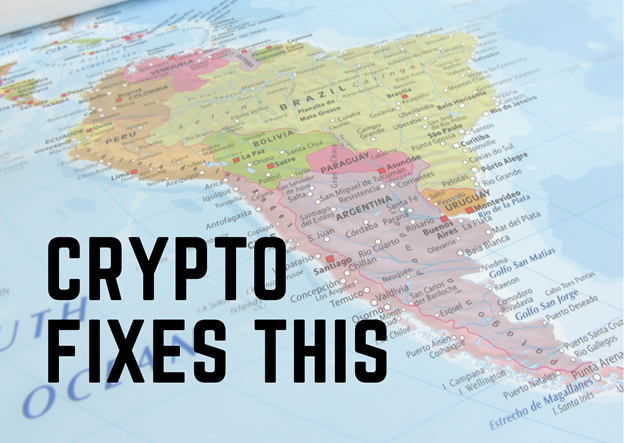Much of South America has been battling financial crises in recent years. Between unemployment and inflation, further fueled by the COVID-19 pandemic, users from most South American countries realized that cryptocurrencies are a viable alternative to their national currencies. Not only does crypto offer the unbanked and the ‘not so elite’ population access to financial tools, but it also provides a quicker, secure, and efficient alternative to fiat remittances.
Earlier in 2021, Statista published a study based on 2020 responses that identified Latin America as one of the global regions with the greatest concentration of cryptocurrency users per capita. Brazil, Mexico, Chile, Argentina, and Colombia ranked amongst the top 15 countries featuring the highest number of crypto users.
With an influx of crypto-based brands and platforms, the traditional financial structure in these third-world countries is poised for a drastic change, paving the path for democratized finance and equal opportunities for the unbanked and underserved population.
Crypto Brands Are Accelerating The Rise Of Parallel Economies
According to the World Bank, almost 50% of the Latin American population doesn’t have access to basic banking services. However, the number of crypto brands in South America has grown substantially over the last couple of years, offering users a cost-efficient alternative.
Take, for instance, Crypto.com, which has carved out a footprint in almost all South American countries, most notably in Brazil. Crypto.com has enabled the local population to use crypto as a more common payment method across several mainstream businesses by offering its full suite of products and services. In addition, Crypto.com also offers its crypto-backed debit card, allowing crypto owners a way to finally pay for goods and services using crypto.
The meteoric rise of crypto adoption in South American countries is being driven by several factors, namely the challenges associated with sending and receiving remittances. Per recent reports, inward remittances to Latin America rose by 6.5%. However, the average costs of sending USD through fiat-based remittance platforms remained high during the same period.
Skrill, one of the leading fiat and crypto platforms, is addressing the challenges associated with remittances. Skrill is extremely popular in South America as a payments platform due to its affordability and transaction execution speeds.
The platform has recently incorporated crypto services alongside its existing fiat services, granting migrant laborers a straightforward, low-cost channel for sending money back home to families and friends. Amidst the volatility and inflation inherent in local currencies, Skrill has established itself as a prominent destination for South American users.
The recent announcement by El Salvador’s President Nayib Bukele confirming that Bitcoin will be accepted as a legal tender is not only a vote of confidence for the crypto ecosystem but has also piqued the interest of neighboring Latin American nations. With El Salvador ruling that Bitcoin is a legal tender, the local population will need access to more crypto-backed financial solutions.
However, Bitcoin has limited real-world use. This is where an innovative smart contract solution, RSK, adds value to the Bitcoin network, bringing the much-needed solution to help accelerate Bitcoin adoption across the South American region. To cater to the growing number of Bitcoin hodlers in El Salvador and neighboring countries, RSK has introduced its side chain that can interact with Layer 1 chains like Ethereum and Bitcoin.
The smart contracts platform also hosts DeFi apps like Sovryn, allowing users to lend, borrow, trade, and earn interest on the BTC they hold. Offering users a way to generate passive income from BTC enables users to grow their net worth, especially in El Salvador, where Bitcoin is now legal tender.
Crypto-friendly regulations, poor access to financial services, and the constant threat of inflation in South American countries contribute to the increased acceptance and adoption of cryptocurrencies. As other crypto brands enter the market, the existing South American financial ecosystem will benefit immensely from the competition it brings, ushering in a higher degree of financial inclusivity, a more level playing field, and a capable solution for unbanked populations.











